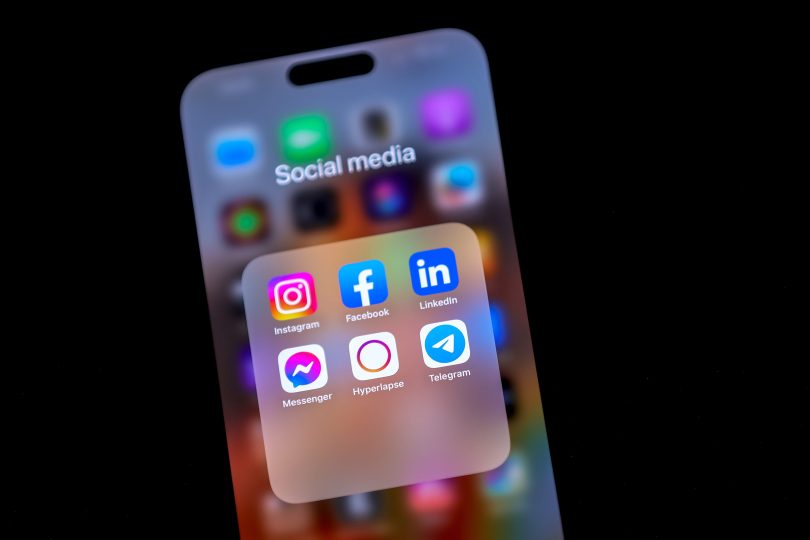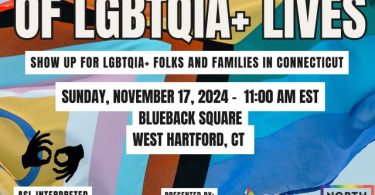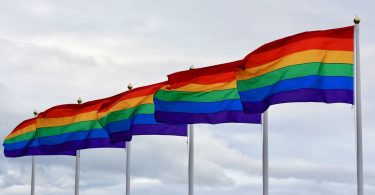NEW YORK (1010 WINS/WCBS 880) – Major social media platforms, including YouTube, Facebook, X and Instagram, received failing grades in areas related to LGBTQ user safety, privacy, and expression, according to a new report by GLAAD, the world’s largest LGBTQ media advocacy organization.
The report, GLAAD’s 2024 Social Media Safety Index (SMSI), known for its detailed analysis of LGBTQ safety online, assessed YouTube, X, Facebook, Instagram, Threads, and TikTok. Except for TikTok, which earned a D+, all other platforms were graded F.
“Over the decades, our definition of media has expanded to include social media as a crucial space for LGBTQ people to tell their stories, but also where harmful stories are being told about us,” Leanna Garfield, Social Media Safety Program Manager at GLAAD, told 1010 WINS.
The SMSI evaluated platforms based on extensive thought leadership, research, journalism, and findings on social media safety and platform accountability, consulting with an advisory committee and other experts in technology and social justice. Despite the platforms having policies against hate speech and harassment, Garfield said that the lack of enforcement was the main issue.
The report claimed that platforms failed to properly moderate anti-LGBTQ content, unfairly suppressed LGBTQ users, used harmful and opaque algorithms, and lacked overall transparency and accountability, disproportionately affecting LGBTQ users and other marginalized communities vulnerable to hate, harassment, and discrimination.
Social Media Safety Index Scorecard
Photo credit GLAAD
“Most of these platforms have great policies, but we’ve seen that they’re not enforced,” Garfield said. “There’s definitely room for moderation to be improved and for training moderators on the needs of LGBTQ users and other marginalized groups. Platforms are not only failing to enforce their own hate and harassment policies with little basic transparency, but they are also disproportionately suppressing LGBTQ content.”
With the emerging use of AI, Garfield added that it has introduced an extra layer of complexity. “AI systems are shadow banning accounts and flagging LGBTQ content as graphic or overtly sexual when similar content by straight creators is not flagged,” they said. “There are inherent biases programmed into a lot of the AI that platforms are increasingly using.”
GLAAD, founded in the mid-1980s as a protest against defamatory press coverage of the HIV/AIDS crisis and as a media watchdog to counter anti-LGBTQ stereotypes in TV and film, reports that online anti-LGBTQ rhetoric is connected to real-world harms.
In November 2022, a gunman opened fire at Club Q, an LGBTQ nightclub in Colorado Springs, Colorado killing five and wounding 19. The following year, more than 700 anti-LGBTQ incidents of hate and extremism in the US were counted.
“These incidents do not occur inside a vacuum — instead, they are driven by an ecosystem of anti-LGBTQ hate and extremism running rampant across social media platforms,” the report read.
Despite minor improvements from GLAAD’s 2023 report, the overall scores remain poor. TikTok scored 67% (D+), Facebook and Instagram each scored 58% (F), YouTube scored 58% (F), Threads scored 51% (F), and Twitter scored 41% (F).
TikTok barely passed but received a slightly higher grade due to specific policies and practices. “TikTok has a prohibition on targeted misgendering and deadnaming, gives users some control over their data collection, and hosts annual training for content moderators on the needs of LGBTQ users,” Garfield explained.
The report offered policy and enforcement recommendations and called on the need to address the extraordinary quantities of anti-trans hate, harassment, and disinformation prevalent on their platforms.
1010 WINS has reached out to YouTube, X, Meta and TikTok for a comment.
GLAAD recommends that platforms strengthen and enforce existing policies, improve moderation with LGBTQ-specific training, increase transparency in content moderation and algorithm designs, respect data privacy, promote civil discourse, and clearly communicate expectations for user behavior in line with hate and harassment policies.







